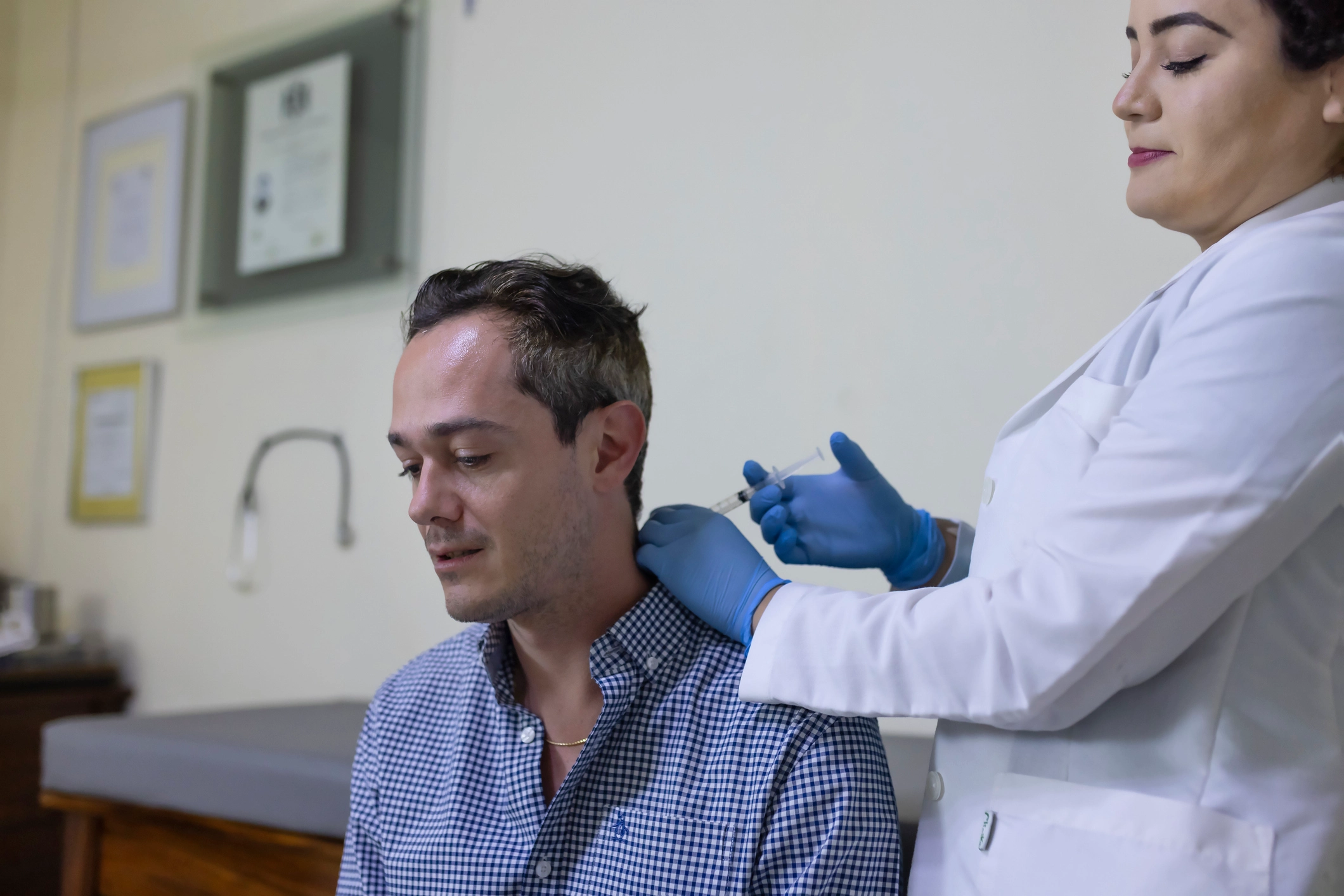Get Help For Frozen Shoulder Pain
Suffering from a frozen shoulder can cause unbearable pain and significantly restrict your range of motion. As a result, a frozen shoulder can limit your ability to perform daily activities. NextPain Care provides treatments aimed at relieving the discomfort associated with a frozen shoulder and supporting an improved range of motion.
Schedule Your Consultation!

What we do
Manage Dull, Aching Pain From Frozen Shoulders Today
Frozen shoulder occurs when the shoulder joint becomes stiff, making it hard to move or even lift your arm. The resulting pain and lack of mobility make it difficult to use the affected arm for physical activities you used to enjoy (such as playing sports) or daily living activities, such as picking things up or reaching for something.
If not addressed, a frozen shoulder can persist for years, impacting your daily activities and mobility. NextPain Care offers a multidisciplinary approach focused on managing the discomfort associated with frozen shoulders and supporting an improved range of motion over time.
-
Persistent pain and discomfort
-
Continued restriction in shoulder movement
-
Possible complications
-
Potential need for complicated procedures
-
Improvements in shoulder pain
-
Enhanced range of motion
-
Evidence-based, personalized care
-
Minimally invasive, safe treatment

How Can We Help You?
What Causes Pain From a Frozen Shoulder?
Frozen shoulder, also known as adhesive capsulitis, is caused by inflammation of the shoulder joint capsule. This inflammation can lead to various symptoms, including joint pain, swelling, muscle spasms in the shoulder and surrounding areas, and stiffness. The shoulder joint capsule is a fluid-filled sac that surrounds the shoulder joint and aids in arm movement.
As the shoulder capsule becomes inflamed, it can press on the nerves running through the shoulder, causing pain that can range from dull to severe. The severity of the pain depends on the progression of the frozen shoulder. Over time, this inflammation may also cause the shoulder joint to stiffen, making it difficult to lift or move the arm.
Several factors can contribute to the development of frozen shoulders, including age, injury, or surgery. Long-term immobilization of the shoulder joint, such as from a cast, sling, or splint, can also be a cause. Additionally, certain diseases, including hyperthyroidism, hypothyroidism, diabetes, Parkinson’s disease, and cardiovascular disease, can increase the risk of developing a frozen shoulder.
Start Today






